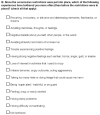Caring for Dementia Caregivers: Understanding Caregiver Stress During the COVID-19 Pandemic
- PMID: 37426770
- PMCID: PMC10328006
- DOI: 10.1177/23337214231185664
Caring for Dementia Caregivers: Understanding Caregiver Stress During the COVID-19 Pandemic
Abstract
More than 16 million Americans provide unpaid care for someone with Alzheimer's disease and related dementias (ADRD). During the COVID-19 pandemic, unpaid caregivers experienced increased chronic severe stress from widespread closures and social distancing. We conducted eight surveys from March 2020 to March 2021 among a cohort of over 10,000 individuals. Cross-sectional analysis was conducted to investigate frequency and ratios of groups reporting increased stress across surveys. A longitudinal analysis was also performed with the 1,030 participants who took more than one survey. We found a growing crisis among dementia caregivers: By Survey 8, current caregivers reported 2.9 times higher stress levels than the comparator group. By that time, 64% of current caregivers reported having multiple stress symptoms typically found in people experiencing severe stress. Both analyses reported increased levels of stressors over time that were more associated with certain caregiver groups. Our findings underscore the urgent need for public policy initiatives and supportive community infrastructure to support ADRD caregivers.
Keywords: ADRD; Alzheimer’s; COVID-19; dementia caregiver; severe stress.
© The Author(s) 2023.
Conflict of interest statement
The author(s) declared no potential conflicts of interest with respect to the research, authorship, and/or publication of this article.
Figures





Similar articles
-
2021 Alzheimer's disease facts and figures.Alzheimers Dement. 2021 Mar;17(3):327-406. doi: 10.1002/alz.12328. Epub 2021 Mar 23. Alzheimers Dement. 2021. PMID: 33756057
-
2022 Alzheimer's disease facts and figures.Alzheimers Dement. 2022 Apr;18(4):700-789. doi: 10.1002/alz.12638. Epub 2022 Mar 14. Alzheimers Dement. 2022. PMID: 35289055
-
2023 Alzheimer's disease facts and figures.Alzheimers Dement. 2023 Apr;19(4):1598-1695. doi: 10.1002/alz.13016. Epub 2023 Mar 14. Alzheimers Dement. 2023. PMID: 36918389
-
Remotely delivered information, training and support for informal caregivers of people with dementia.Cochrane Database Syst Rev. 2021 Jan 4;1(1):CD006440. doi: 10.1002/14651858.CD006440.pub3. Cochrane Database Syst Rev. 2021. PMID: 33417236 Free PMC article.
-
Longitudinal Trajectories and Correlates of Post-Caregiving Depressive Symptoms in Former Caregivers of Persons With Alzheimer's Disease or a Related Dementia.Am J Hosp Palliat Care. 2022 Jun;39(6):725-736. doi: 10.1177/10499091211042836. Epub 2021 Sep 3. Am J Hosp Palliat Care. 2022. PMID: 34477008 Review.
Cited by
-
Sentiment Dynamics Among Informal Caregivers in Web-Based Alzheimer Communities: Systematic Analysis of Emotional Support and Interaction Patterns.JMIR Aging. 2024 Dec 4;7:e60050. doi: 10.2196/60050. JMIR Aging. 2024. PMID: 39630495 Free PMC article.
-
Alzheimer's Disease and Related Dementias in Muslim Women: Recommendations for Culturally Sensitive Care.J Alzheimers Dis. 2024;99(3):857-867. doi: 10.3233/JAD-240064. J Alzheimers Dis. 2024. PMID: 38759011 Free PMC article. Review.
-
Psychological resilience trajectories after the COVID-19 pandemic: the role of lifestyle and psychosocial factors in a cohort at increased alzheimer's disease risk.Soc Psychiatry Psychiatr Epidemiol. 2025 Jun 23. doi: 10.1007/s00127-025-02937-w. Online ahead of print. Soc Psychiatry Psychiatr Epidemiol. 2025. PMID: 40548976
-
Career stage variations in mental and somatic health symptoms among nursing professionals in China: a cross-sectional study.BMC Nurs. 2025 Jun 6;24(1):647. doi: 10.1186/s12912-025-03251-1. BMC Nurs. 2025. PMID: 40481545 Free PMC article.
-
Identifying, Engaging, and Supporting Care Partners in Clinical Settings: Protocol for a Patient Portal-Based Intervention.JMIR Res Protoc. 2025 Mar 4;14:e66708. doi: 10.2196/66708. JMIR Res Protoc. 2025. PMID: 40053789 Free PMC article.
References
-
- Aledeh M., Habib Adam P. (2020). Caring for dementia caregivers in times of the COVID-19 crisis: A systematic review. American Journal of Nursing Research, 8(5), 552–561. 10.12691/ajnr-8-5-8 - DOI
-
- Alzheimer’s Association. (2023). Alzheimer’s disease facts and figures. Created with data from the Alzheimer’s Association. https://www.alz.org/media/documents/alzheimers-facts-and-figures.pdf
-
- Blasco-Belled A., Tejada-Gallardo C., Fatsini-Prats M., Alsinet C. (2022). Mental health among the general population and healthcare workers during the COVID-19 pandemic: A meta-analysis of well-being and psychological distress prevalence. Current Psychology. Advance online publication. 10.1007/s12144-022-02913-6 - DOI - PMC - PubMed
-
- Carbone E. A., de Filippis R., Roberti R., Rania M., Destefano L., Russo E., De Sarro G., Segura-Garcia C., De Fazio P. (2021). The mental health of caregivers and their patients with dementia during the COVID-19 pandemic: A systematic review. Frontiers in Psychology, 12, 782833. 10.3389/fpsyg.2021.782833 - DOI - PMC - PubMed
LinkOut - more resources
Full Text Sources

